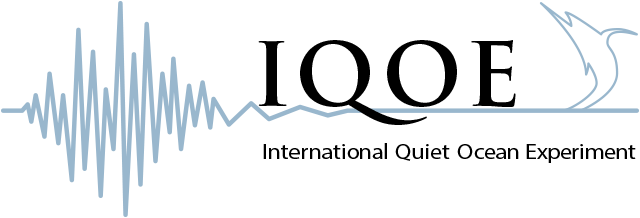New paper: A quantitative inventory of global soniferous fish diversity (https://link.springer.com/article/10.1007/s11160-022-09702-1…). See also FishSounds database at https://fishsounds.net/index.js. See also press release.
IQOE News
The IQOE Working Group on Acoustic Measurement of Ocean Biodiversity Hotspots and other colleagues have published an article calling for a Global Library of Underwater Biological Sounds (GLUBS) (see article at https://www.frontiersin.org/articles/10.3389/fevo.2022.810156/full and press release at Global Library of Underwater Biological Sounds, “GLUBS,” Will Help Monitor Changing Marine Life (constantcontact.com)). The latest IQOE Newsletter is available here. IQOE is co-sponsored by the Scientific Committee on Oceanic Research and Partnership on Observation of the Global Ocean.
IQOE has been compiling metadata about hydrophone deployments for the past two years. This database includes records for about 600 current and past hydrophone deployments. A map as of 8 August 2021 is given at https://www.iqoe.org/systems. I am in the process of updating this static map.
We know that static maps on a specific date do not present a complete picture of hydrophone deployments. We are in the process of updating the hydrophone database to make it possible to create maps for a range of dates to provide more complete information. We are also adding the possibility to show mobile deployments that start and end at different geographic coordinates.
The updated database will be integrated with the IQOE Website. It will not contain acoustic data for the hydrophone deployments, but will contain metadata for each one, including contact information, that will make it easier to obtain data.
If you have not yet submitted hydrophone metadata for the existing database—for current or past deployments and stationary or mobile deployments—and would like to get your metadata into the database, please submit your metadata on the input form.
Apart from providing a community resource, IQOE hopes to use the database to identify data holders who can help create time series of ambient ocean sound for different parts of the ocean by the end of IQOE in 2025.
Please forward this email to anyone you think would be interested in submitting metadata.
Best regards,
Ed Urban
IQOE Project Manager
The IQOE WG on Marine Bioacoustical Standardization has released the IQOE Inventory of existing standards and guidelines relevant to marine bioacoustics. It complements the IQOE inventory of physical ocean acoustics standards.
We are pleased to announce the launch of a software system called Ocean Sound Software for Making Ambient Noise Trends Accessible (MANTA), available at CLO-BRP / MANTA-WIKI / wiki / Home — Bitbucket The MANTA wiki includes instructions required for its use.
The IQOE Science Plan published in 2015 featured the concept of an International Year of the Quiet Ocean (IYQO). This year would seek quieting of the ocean in specific areas to study how much human additions of sound could be reduced and how organisms would react, as well as more generally focus effort on IQOE-related observations and research. The IQOE Science Plan suggested the IYQO as year 7 of the 10-year IQOE project. IQOE also foresaw studies that would take advantage of serendipitous events that change ocean noise levels.
During Year 5 of the IQOE project (2020) the COVID-19 pandemic provided an unanticipated interval of reduced sound levels larger than IQOE dreamed possible through an IYQO based on voluntary reductions of anthropogenic sound. Appreciating this extraordinary occurrence, IQOE has designated 2020 the International Year of the Quiet Ocean and is focusing project resources to encourage study of changes in sound levels and effects on organisms during 2020. Fortunately, the worldwide ocean acoustics community had deployed hundreds of hydrophones able to capture the ocean soundscape during 2019-2021.
IQOE-related teams are releasing software to enable comparable analyses of sound observations and a data management system to assemble data from observations in many different locations.
Preliminary results from individual studies of 2020 indicate that the effects on marine animal behavior of changes in human activities in different locations depend on particular features of local and regional sound source reductions, pandemic-mitigation policies adopted in each area, and national maritime and marine recreation cultures.
IQOE welcomes ideas about how the present quieting of the world economy may advance research in marine sound. High-quality observations of the ocean soundscape, as well as possibly related behavior of marine life during this period, may offer unique opportunities of exceptional value. Send ideas to Ed Urban ([email protected]).
